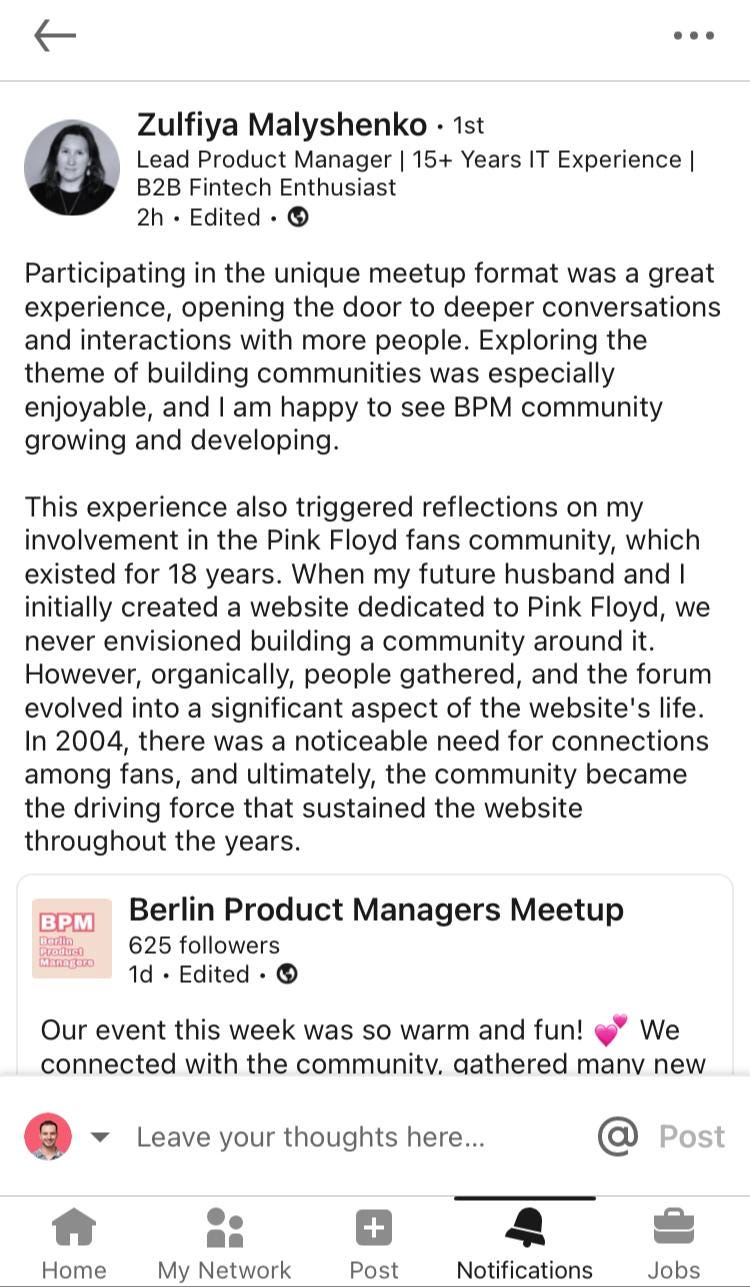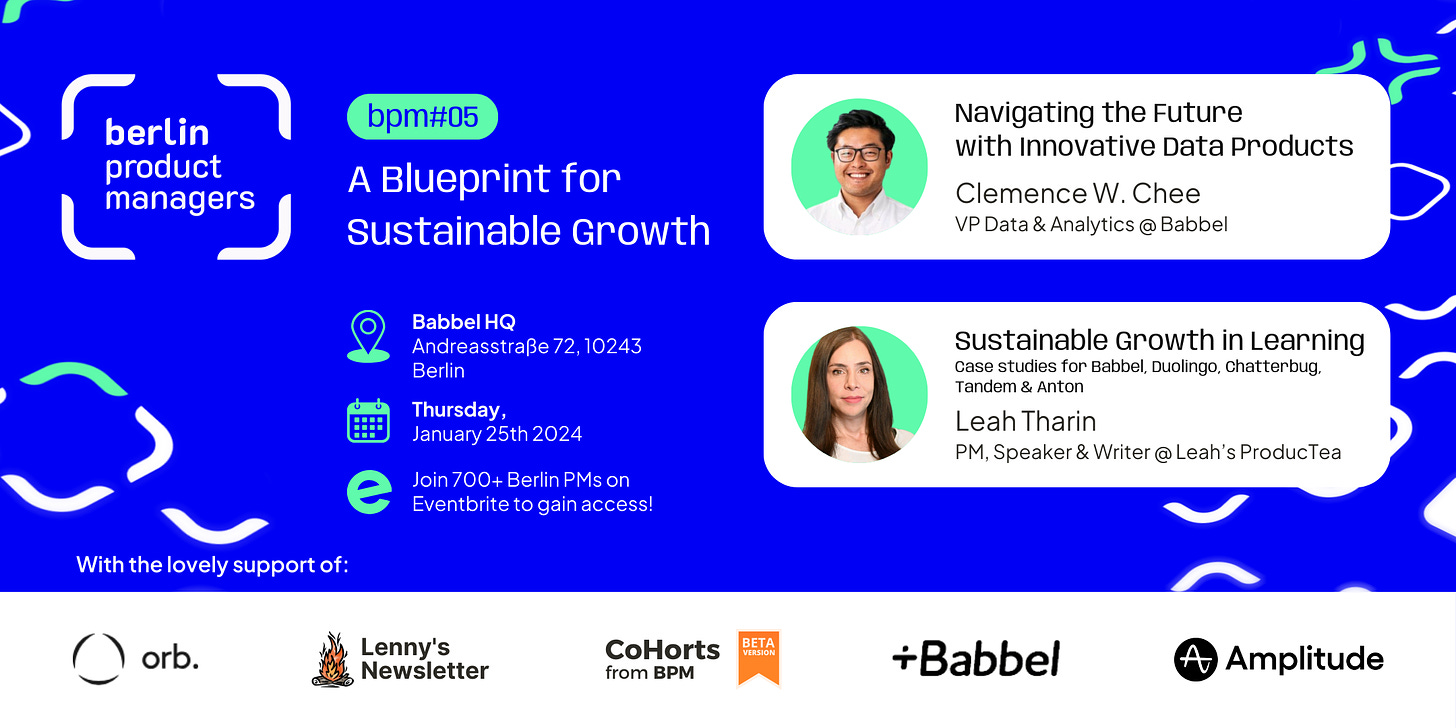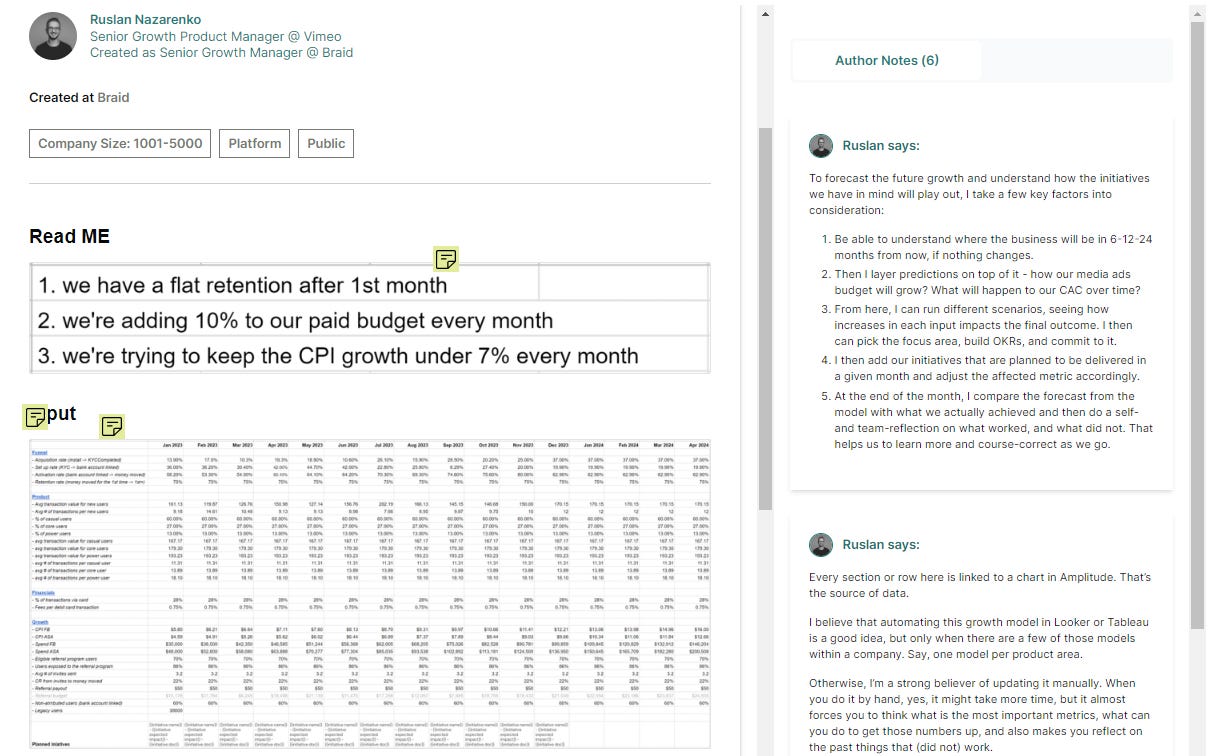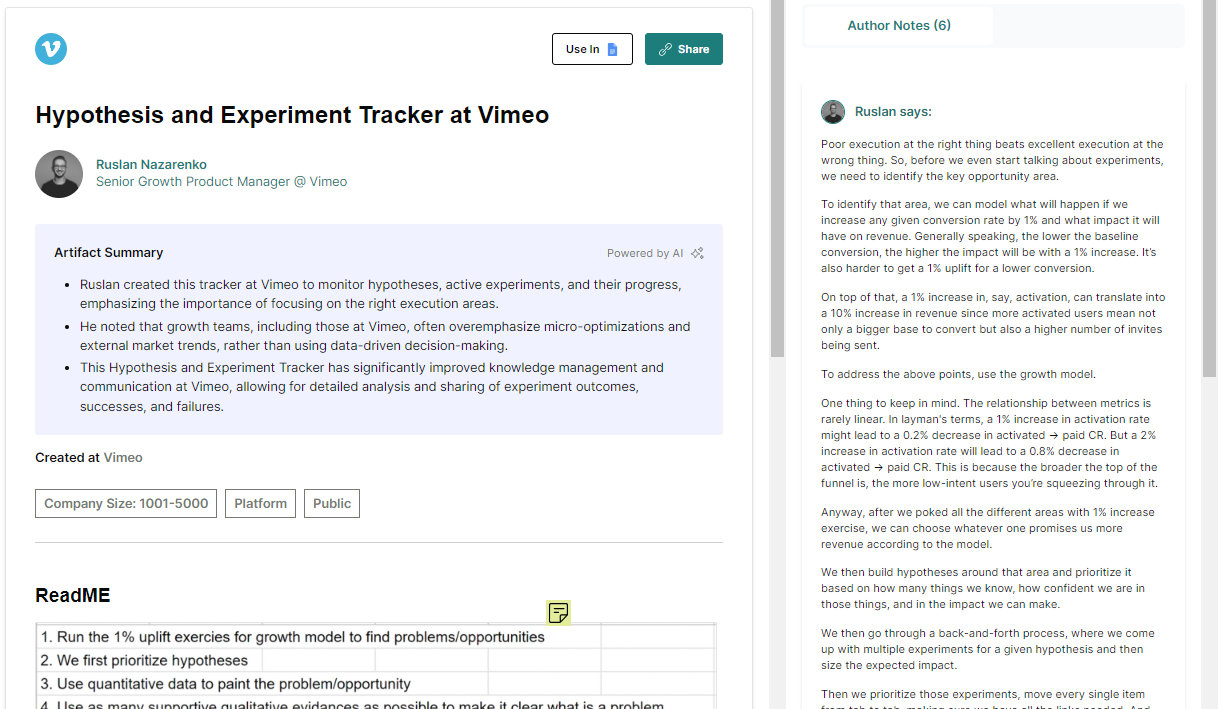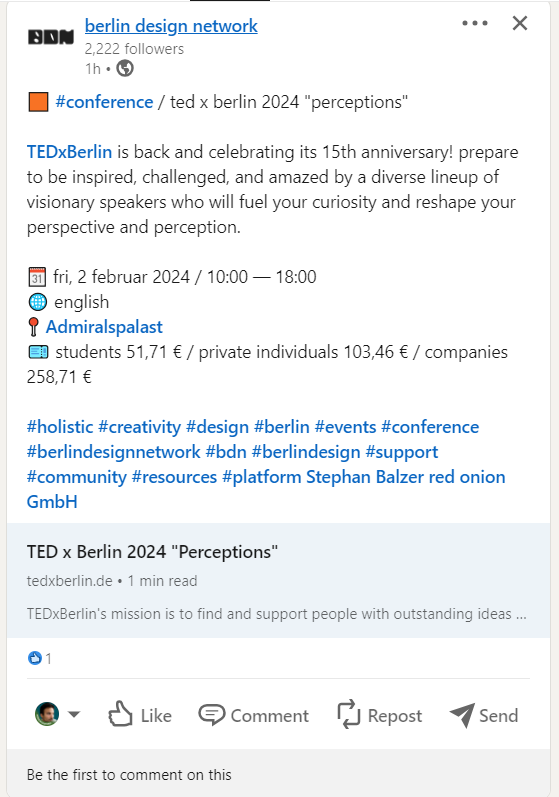BPM Meetup #5, A blueprint for sustainable Growth
Growth Models, Experiment Tracker, and CoHorts by BPM
In previous episode...
On 12th of December we hosted an amazing Mix and Mingle event! If you had at least as much fun as we did, then the event was certainly a success!
What our attendees say:
If you have been to our meetup, but didn’t leave the feedback, fill in a short form
Up next...
Our next event will start the BPM season and we worked hard to push the community beyond. As we keep our mission in mind: Foster product culture in Berlin we aim to get top speakers, increase seniority level among the community, aiming for an aftermath of top learnings and networking.
We want to personally thank our members from Babbel: Julian Ringel, Eli Cohen, and Ulyana Egof or making our mission a reality. We appreciate the efforts of Amplitude Cohort Community and Esther for supporting us, as well as having Leah Tharin, curator of Leah’s ProducTea and a top PLG and Growth speaker in Berlin.
To match such quality, Babbel accept the challenge with Clemence Chee, who has over 10 years of experience as a Data & Technology enthusiast, Investor, and VP at Babbel, and is also an ex-Hello Fresh professional. It seems like an interesting start to the year ❤
Our final thanks go to Lenny’s Newsletter for sponsoring this event. The Lenny community has renewed our collaboration for 2024 with more ideas and budget, embracing our philosophy of investing in useful things for our community!
Wanna join?
Guest post by Ruslan Nazarenko
Today, our guest post is written by Ruslan, a former member of Vimeo and Bird, as well as the author of several artefacts on Reforge. In addition to his writing, Ruslan serves as an angel investor, mentor, and lecturer.
The first thing to know about me - I’m a spreadsheet person. And yes, I have THE spreadsheet with links to other spreadsheets.
Besides having a strong anxiety when things aren’t going as planned, it yields one (but major) benefit.
I’m obsessed with clear and transparent communication.
Now, when it comes to growth, it might be a tricky goal to achieve. But that’s where the spreadsheet magic comes in handy.
If we break down the growth process, it’ll look something like this:
Identify the next growth opportunity
Get the qual and quant data together to form a hypothesis
Build a roadmap
Execute on it
And for sure one should never forget about doing all of that with a high level of clarity.
The growth model is how we tackle the first goal of identifying the opportunity. The goal is simple - if we invest $1 into acquisition, how many bucks we get back? Your dollar is going through multiple steps of transformation. It brings you visitors, those visitors become users, and then as a function of your product - with retention and engagement as the function’s inputs - you get the money back.
That’s exactly what a growth model would tell you.
Having a model is extremely beneficial since now you can run the “1% increase exercise” to find out which one of your conversions will result in the biggest uplift in number of users or the money you’ll get.
Once the opportunity was found, it’s time for an experiment tracker to come into the game. A few things I want to call out specifically:
The quant data shows the problem/opportunity
Only the qual data would explain why this problem/opportunity exists
Knowing that, we can derive a strong hypothesis, and perhaps even a few of them.
I then prioritize the hypothesis first
And only after that, I’d go about prioritizing the experiments themselves
These two spreadsheets are the alignment tools I use to explain to my cross-functional teams why we’re doing something, what is that we’re doing, and how we’re doing it. The experiment tracker is then used as a knowledge base, where every single member of a company can learn what has been tested, what results we got, and what follow-up work it has created.
The last missing piece here is the learning. Once the test is done, it’s only as good as the learning we extracted from it. While it is certainly a pleasant experience observing our conversions go up, it should be just a cherry top on the cake.
The cake itself is learned through a few lenses:
Were we able to confirm the causation between the two metrics?
If so, what’s the level of dependency here?*
Did we get an uplift?
How did that uplift affect secondary metrics?
Did we prove/disprove the hypothesis?
Nevertheless, what’s the follow up work needed?
*The dependency level isn’t a linear thing. Meaning, that a 1% increase in metric X can lead to a 0.3% decrease in metric Y. But the more X is growing, the faster Y is dropping down. And for something like a 5% increase in X, we can get now a 6% drop in Y!
I want to spend a bit more time on the last one.
A lot of times when I just joined a company, I’d hear people complaining about the growth team abandoning the work after a few attempts. When it might be clear within a growth team, that the direction proved to be the wrong one and therefore should be discarded, folks from other teams might not have enough background to get the same feeling from the air.
So don’t forget to share your learnings!
Our future plans:
We have been amazed by latest Lenny’s podcast and exceptional speaker and entrepreneur Jim Rohn
With few keypoints we will adopt for 2024:
Focus on created value and profitability, rather than growth
Six weeks planning
Keep everything simple, one plan, how many user you want
and from Jim Rohn
Build our own philosophy
Invest on ourselves: knowledge, self-awareness, and values
Working (on companies) for what I am becoming rather what I am getting
Saying so we are working hard next year to a potential path to become an NGO, create profitability, and setting standards for us and the community.
Carlo and Daniele are working on CoHorts, monthly programs, online and in person to foster career growth and networking for senior people with the collaboration of Antonia Landi, Freelance Product Operations & Product Management Leader, and one of the top voices in European Product Operations among other great mentors!
Now into user research and building up the first CoHort, we will start on Q2/24.
Discover more with Daniele.
and joining TedX Berlin, thanks BND for the shoutout! Link to their post
That was all for today, but let’s agree, that was an amazing learning! To provide feedback and to learn more about the community, check out our LinkedIn!
If you like what we do, share this post with your colleagues and friends!
See you at our next Meetup!
BPM Team







